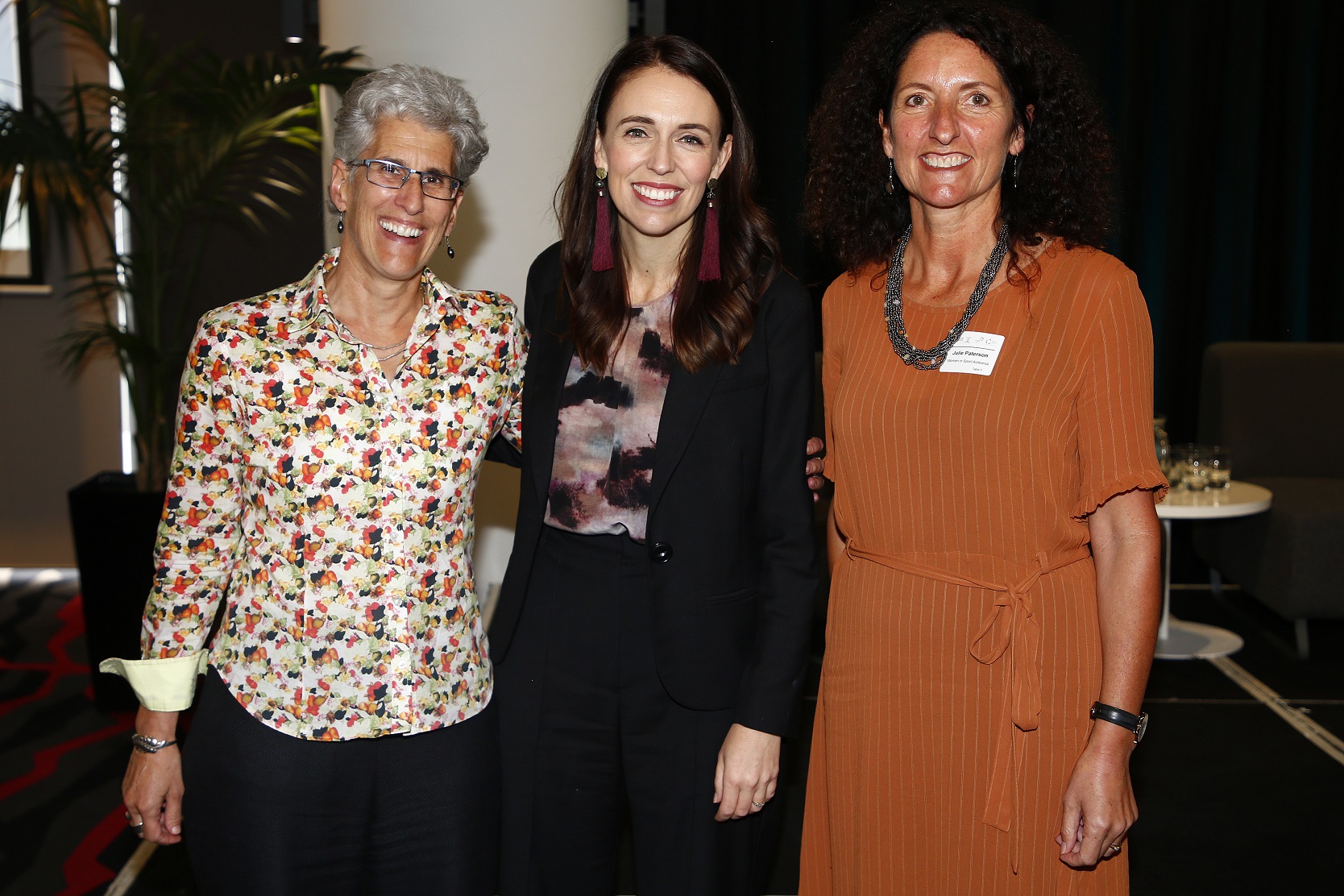
Julie Paterson never set out to be involved in women’s sport.
But she has done more for the sector than many will know.
Paterson is stepping down as co-chairwoman of Women in Sport Aotearoa, an organisation she proudly co-founded in 2016 to help women and girls gain equal opportunities to participate, compete and build careers in sport and recreation.
"I’m not stepping away because I think the job’s done," Paterson said.
"I’m stepping away because the time is right for a new, fresh, voice to come into Women in Sport Aotearoa.
"There’s still definitely work to be done and I will continue to be involved, but in a slightly different capacity."
Paterson, who was the chief executive of Netball South from 2006 to 2012 and Netball Northern from 2012 to 2017, founded her brainchild, alongside Prof Sarah Leberman, after spending years watching the Southern Steel and Northern Mystics being set back from a lack of recognition.
"When I first started working in the sports sector, the imbalance of funding, commercial partnerships, visibility, value was really, really obvious.
"It was something that built in me over a few years of just how unfair I thought it was, particularly working in netball, and knowing how professional our athletes were, what a professional wonderful product that we had, and still continue to have, and yet, it just wasn’t given the same recognition or value that the other sports were.
"I was like, ‘this is just not right ... what can we do to change this?’."
Paterson, now the chief executive of Tennis New Zealand, met Leberman in 2015, as part of the Global Sports Mentoring Programme, and their thoughts aligned about the lack of information regarding women’s sport.
Determined to create a better pathway, they founded Wispa with a strategic vision for women and girls to be valued, visible and influential in sport and recreation. It held various public forums, campaigned advocacy and leadership change, and hosted the Sport New Zealand women and girls summit.
"The landscape has changed hugely in that time, which is absolutely fantastic," she said.
"It’s quite hard to believe that seven short years ago, [there was] very, very little visibility for women’s sport.
"There just wasn’t a vehicle, or an organisation, that was advocating in that space at the time."
There had been many highlights from her time with Wispa, including the first summit, where Minister for Sport and Recreation Grant Robertson announced raising the profile of women and girls in sport was his top priority.
It was a "sea change" for women’s sport that quickly snowballed with Sport New Zealand developing its women and girls in sport strategy, and more people started taking notice, she said.

The organisation then secured the right to host the International Working Group conference on women and sport, held in Auckland last November, and bidding off the back off New Zealand hosting three other women’s world cups (cricket, rugby, and football) was huge, she said.
"There were just a whole lot of things that all came together at same time.
"I’m so very proud that Women in Sport Aotearoa was in a place that we could make the most of those opportunities and also help build and amplify those opportunities as well."
The conference, featuring high-calibre speakers and covering a breadth of topics from across the world, was invaluable, and for some people it was a "once-in-a-lifetime opportunity".
Paterson, who is on the International Tennis Federation gender equality sub-committee, wanted Wispa to help connections "create waves" in the sector across the country, an area where she already witnessed massive growth, she said.
"I think seven years ago there were some people doing amazing things in New Zealand.
"A lot of really fantastic research, a lot of really good things, but it was all happening independently, little pockets of people doing amazing work.
"The network has helped us bring a lot of that to the surface and also connect people."
She knows change takes time — and is the first to say there is more to do — but women’s sport becoming normalised to broadcast was a massive coup.
"I think the visibility of women’s sport has increased significantly," she said.
"There’s still some way to go. You can look at the Sport New Zealand research to see it has definitely been an uplift in women’s sport, both in media and in broadcast.
"There’s definitely been an increased interest in commercialisation in women’s sport, but again — there’s still a way to go."
That idea of moving forward brings her full circle — she is not stepping down because her job is done, but because it is time for someone else to lead.
Her journey with Wispa is one she will always cherish.
"Gosh, I’ve absolutely loved it.
"I have met some of the most amazing women, who have now become very good friends, that I wouldn’t have had the opportunity to meet, or work alongside, if it hadn’t been for the establishment of Wispa and for that I am incredibly grateful."












